- Replies 6
- Views 397
- Created
- Last Reply
Most active in this topic
-
Roburt 5 posts
-
Whiskyagogo 1 post
Most Popular Posts
-
A selection of records on the charts when Sam & Dave would have been selecting the songs they'd include in their act after first getting together as a duo ... ... not too many of them that would
-
Sam & Dave's Roulette 45 on a local pop radio stns chart in 63 ... sharing space & the airwaves with the likes of Peter, Paul & Mary, Andy Williams and Ann Margaret.
-
Later in 1962, Sam & Dave were still resident @ the King O' Hearts in September. The first ad for the club I can find where they don't seem to still be on there was in mid October 62 ... their 3rd
Most Helpful Posts
-
A selection of records on the charts when Sam & Dave would have been selecting the songs they'd include in their act after first getting together as a duo ... ... not too many of them that would
-
Sam & Dave's Roulette 45 on a local pop radio stns chart in 63 ... sharing space & the airwaves with the likes of Peter, Paul & Mary, Andy Williams and Ann Margaret.
-
Later in 1962, Sam & Dave were still resident @ the King O' Hearts in September. The first ad for the club I can find where they don't seem to still be on there was in mid October 62 ... their 3rd

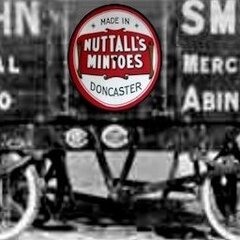
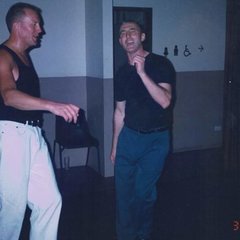
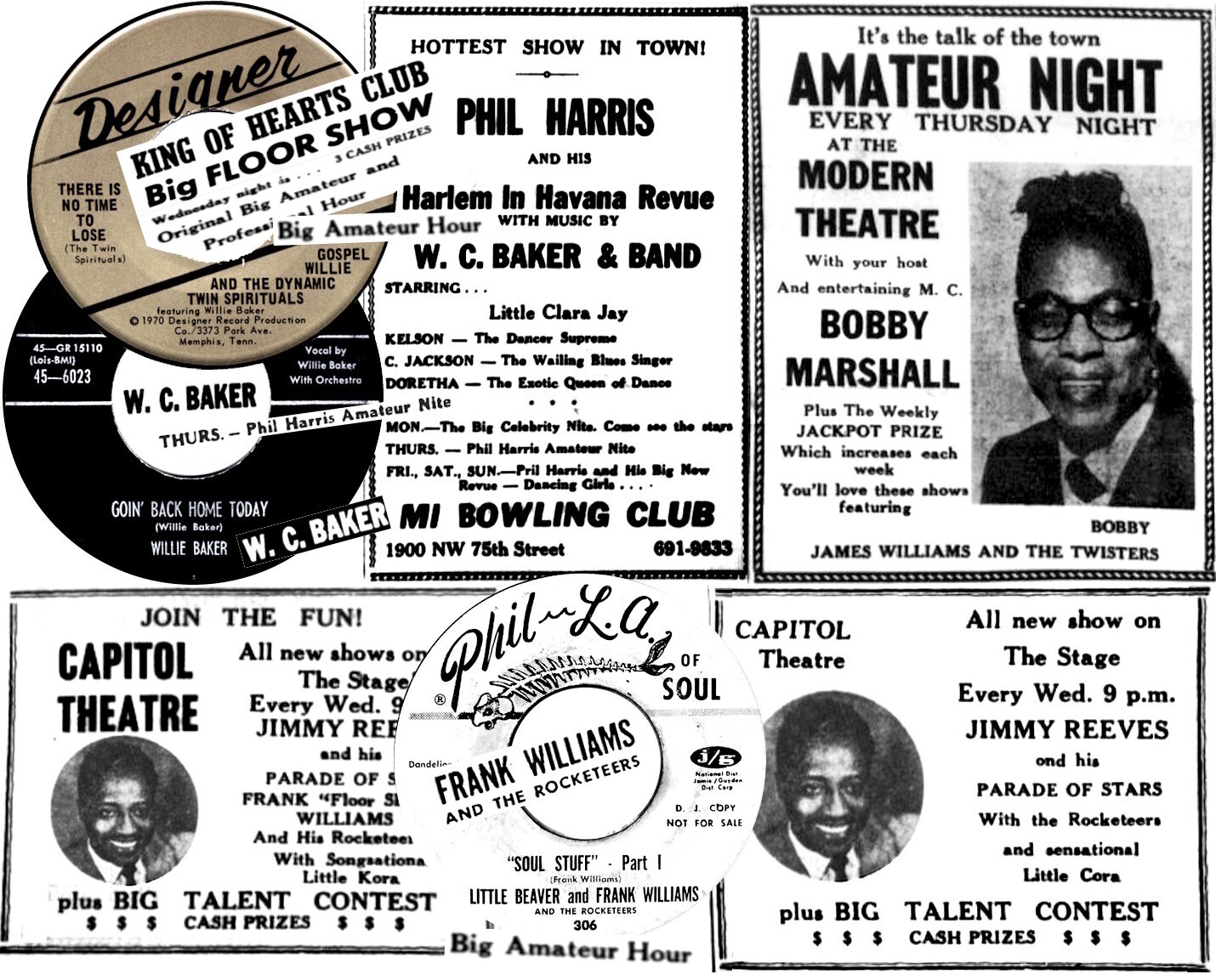
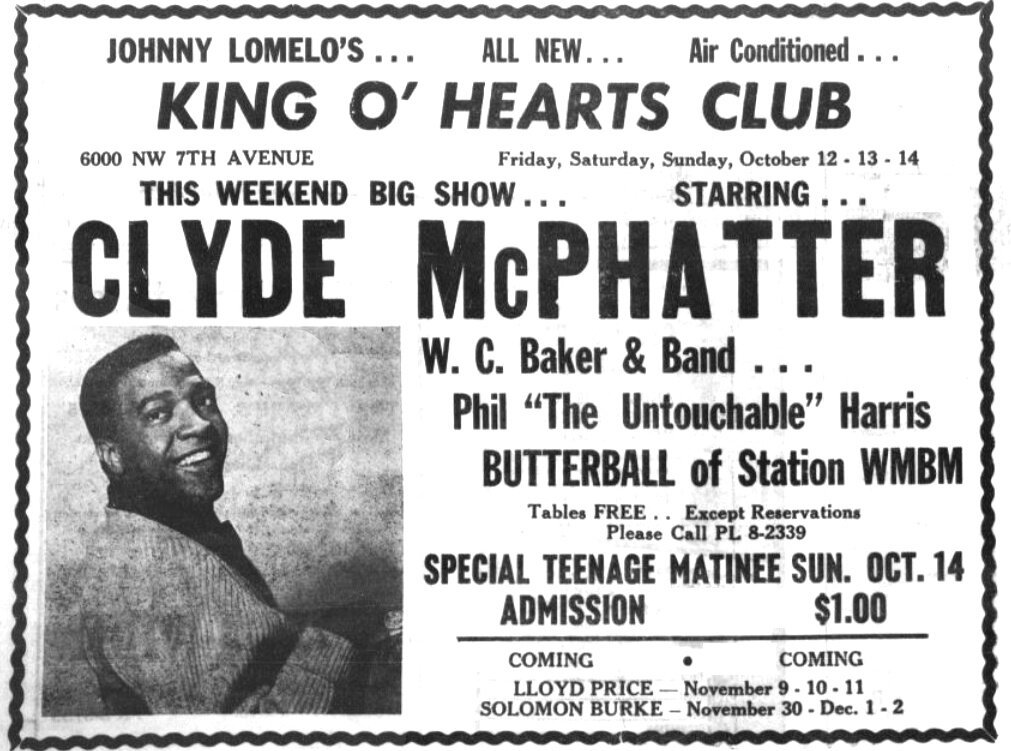
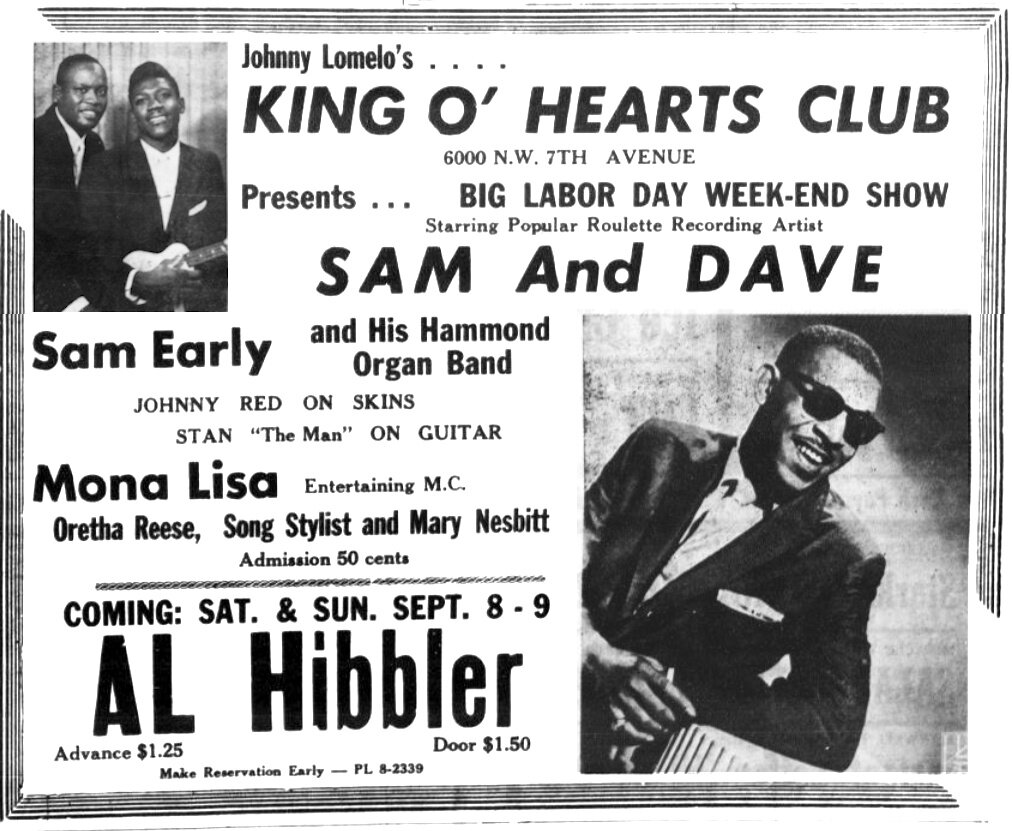
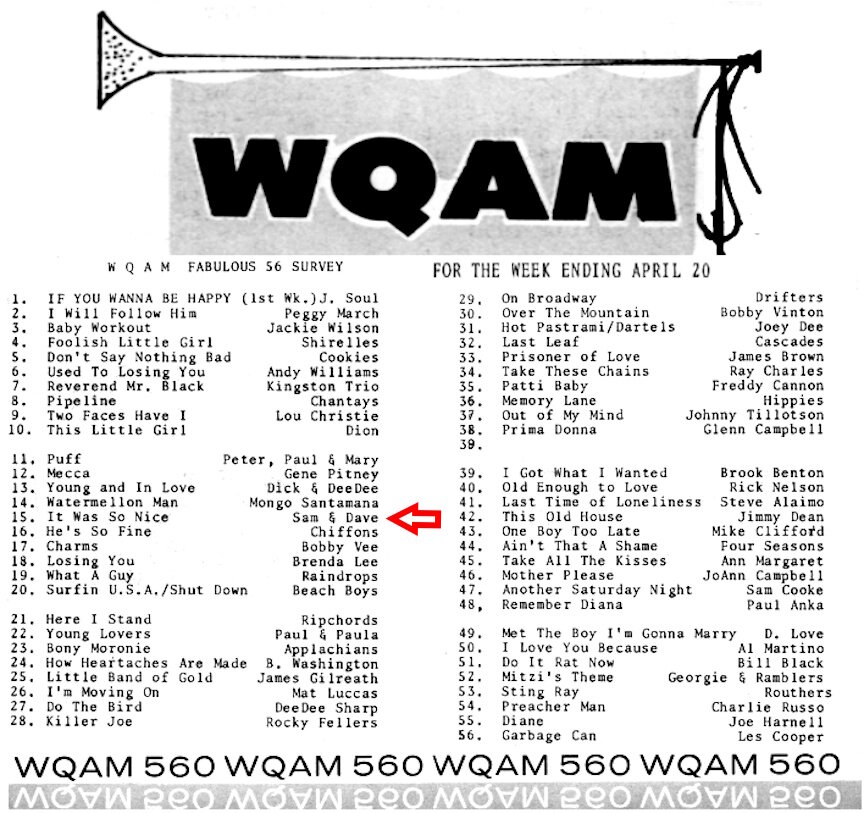
A DAY LATE BUT STILL WORTH POSTING ...
Sam Moore was born in Miami’s Overtown neighbourhood on Oct. 12, 1935, so (if he were still alive) yesterday would have been his 90th birthday.
Moore was raised in a house on Third Avenue in Overtown mostly by his mom. He went to Phillis Wheatley and Paul Laurence Dunbar elementary schools in Miami. He briefly lived with an aunt in Fort Lauderdale where he attended Dillard High School. Moore graduated from Booker T. Washington Senior High in Overtown in 1955. He was soon attempting to establish a singing career but was struggling to get it to take off. Unbeknownst to Sam, another young singer - Dave Prater - had relocated to Miami from Georgia in 1957. Prater had started out singing gospel in the choir in his local church. He then joined his older brother, JT Prater, in the gospel group The Sensational Hummingbirds. But fame beckoned & he'd relocated to Miami. By 1960, both guys were performing solo shows in local black nightclubs around the Miami area without a great deal of success.
Then, one night in June 1960 Sam attended a show at the King O' Hearts club (6000 NW Seventh Ave. in Miami’s Liberty City). The club staged amateur shows along side the established local acts who were also playing the venue. A nervous aspiring gospel trained R&B singer, Dave Prater, was struggling up on stage. Moore, who had similar musical roots and ambitions, recognized Dave's talent and decided to help out. He went on stage too & coached the younger guy, helping him to remember the words to the song he had to perform. Dave managed to get through his performance that night and a new friendship had been established. Soon (a matter of days later) Sam & Dave decided to perform together as a duo and the owner of the King of Hearts club (John Lomelo Jr) instantly knew he could be onto a winner. He signed the guys up to a contract that tied them to perform at his club as a duo for an extended period.
The pair sorted out an act (singing recent soul chart sounds and classic hit songs) and began to perform together. The word soon got out. In early July 1960 they were yet another act on a busy bill trying to appeal to the club's audiences. Just a week later they'd been moved to top of the bill, another 7 days passed & their photo had been inserted into the club's ad ... a meteoric rise towards stardom. The club now had no need to place weekly ads in local newspapers, the plce filled up anyway as the duo's fame spread locally. When the club decided to also book a named act, the owner would place an ad, however Sam & Dave would still be on the bill. Even after they'd done some recordings locally and these had been sold on to New York based Roulette Records (March 62), the pair were still starring at the King Of Hearts. Their Roulette 45's didn't set the world on fire, though "No More Pain" (1962) hit the radio charts in Trenton, Atlanta & Birmingham. Their May 63 outing, "It Was So Nice While It Lasted" did almost as well, charting strongly in Miami (making WQAM's Top 20). But it wasn't enough for Roulette and 1964 found them back on the local Alston label.
But top soul acts visited Miami to play shows, especially in the winter months, when the weather down south attracted snow birds. One such snow bird was Atlantic Records Jerry Wexler. In summer 1964, Henry Stone, who owned Alston Records, introduced the duo to Wexler. Quickly signed to a deal with Atlantic, they would be sent up to Memphis by the Atlantic supremo to cut in the studio of a southern label that Atlantic distributed, Stax Records. The rest of the story became soul history soon after the release of their first Stax 45 in March 65. The duo's 2nd Stax outing was "I Take What I Want" and this hit the charts in Washington DC, Detroit & LA (+ in Florida of course). The next release, "You Don't Know Like I Know "(Nov 65) hit the charts right across the US and turned them into an international act.
Back then (1960's) Miami was two very different places. There was Miami Beach, the up-market whites only pleasure resort. Then there was the Overtown / Liberty City & Hialeah areas -- the black ghettos. The blacks had their own businesses, shops, schools and clubs. The clubs were thriving in the early 60's, doing good business & making money. BUT downtown Miami needed better access routes. From downtown, you reached the beach front areas, so better roads were a must to keep the visitors coming too. The city council tore up the black neighbourhoods to make room for the I-95, I-195 & I-395 freeways. This swept away much of the low rent housing areas. The locals who rented the properties that were demolished had to move away. This once thriving busy residential area went into even deeper decay. By the time the freeways were opened in the mid 60's, the local population had plummeted and the once thriving clubs had shut up shop for want of audiences. The King O' Hearts Club, along with many other buildings, was demolished. Luckily, for Sam & Dave, they'd made a nationwide name for themselves and had moved away.